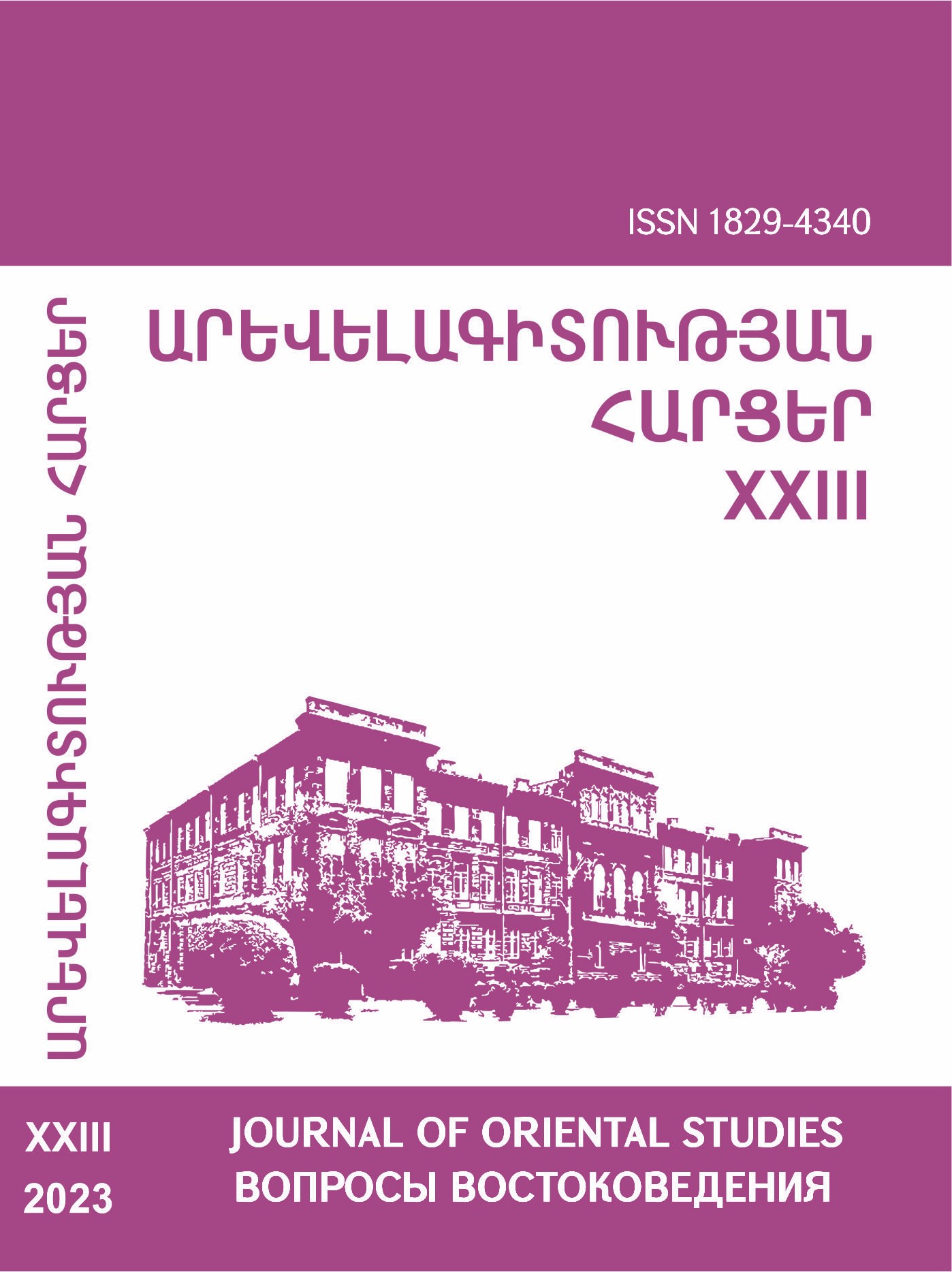INFORMATION TECHNOLOGIES AS A FACTOR OF KURDISH IDENTITY-BUILDING AND NATION-BUILDING AND THE KURDISH DIASPORA AS THE PRIMARY OPERATOR OF INFORMATION TECHNOLOGIES IN THIS PROCESS
DOI:
https://doi.org/10.46991/jos.2023.23.1.066Keywords:
Information Technology, Internet, Ethnic Group, Identity, Self-identification, Nation-building, Kurdish diasporaAbstract
The role of information technology in the creation and dissemination of ideas in the public domain has increased significantly, and stateless peoples benefit the most from this. Unlike traditional forms of media (press, radio, television), these information flows are extremely difficult to control by state institutions and power structures, which further increases their effectiveness and applicability. This fact is well understood by the Kurdish diaspora as a user of information technology as a identity-building and nation-building tool.
References
Anderson, Benedict․ Imagined communities: Reflections on the origin and spread of nationalism (Rev. ed.), London: Verso, 1991.
Anderson, Benedict․ Long-distance nationalism: World capitalism and the rise of identity politics, Amsterdam: CASA, 1992․
Aghapouri, Hossein (Jiyar)․ “Nationalism and Diaspora in Cyberspace: The case of the Kurdish diaspora on social media”, PhD diss., University of Auckland, 2018.
Brubaker, Rogers․ “The 'diaspora' diaspora,” Ethnic and Racial Studies, 28 (2005): 1-19.
Candan, Menderes․ “Nation building online: A case study of Kurdish migrants in Germany,” German Policy Studies, 4(4), (2008): 125-53.
Khayati, Khalid․ From victim diaspora to transborder citizenship? Diaspora formation and transnational relations among Kurds in France and Sweden, Linköping: Linköping University, 2008․
McDowall, David․ A Modern History of The Kurds, 4th edition, London: I. B. Tauris, 2021.
P. Bakker, New Nationalism - The Internet Crusade, accessed May 8, 2023, https://tamilnation.org/selfdetermination/nation/bakker.htm.
Romano, David․ The Kurdish nationalist movement: Opportunity, mobilization, and identity․ NY։ Cambridge University Press, 2006.
Safran, William․ “Diasporas in modern societies, myths of homeland and return,” Diaspora: a Journal of transnational Studies, 1(1, 1991): 83-99.
Saunders, Robert A. Ethnopolitcs in cyberspace: The Internet, minority nationalism and the web of identity․ MD: Lexington Books, 2011.
Sheyholislami, Jaffer․ “Identity, language, and new media: The Kurdish case,” Language Policy, 9(4), (2010): 289-312.
Sheffer, Gabriel․ Diaspora politics at home abroad, Cambridge: Cambridge University Press, 2003․
Tas, Latif, “Stateless Kurds and their multiple diaspora,” The IMI Working Papers Series, 10 (2016): University of Oxford, Oxford.
Tölölyan, Khachig․ “The nation state and its others: In lieu of a preface,” Diaspora: a Journal of Transnational Studies, 1 (1, 1991): 3-7.
Downloads
Published
Issue
Section
License
Copyright (c) 2023 Author(s)

This work is licensed under a Creative Commons Attribution-NonCommercial 4.0 International License.
Authors will be entitled in ownership of the copyright for their publications.
Permitted third party reuse is defined by the following user license:
Creative Commons Attribution-Non-Commercial (CC BY-NC). CC BY-NC allows users to
copy and distribute the article, provided this is not done for commercial purposes. The users may
adapt – remix, transform, and build upon the material giving appropriate credit, providing a link
to the license. The full details of the license are available
at https://creativecommons.org/licenses/by-nc/4.0/.
Under this license, authors retain ownership of the copyright for their publications, but
grant Journal of Օriental Studies and Yerevan State University
Publishing house a non-exclusive license to publish the work in paper and electronic form and
allow anyone to reuse, distribute and reproduce the content as long as the original work is
properly cited. Appropriate attribution can be provided by simply citing the original work. No
permission is required from the authors or the publishers.

